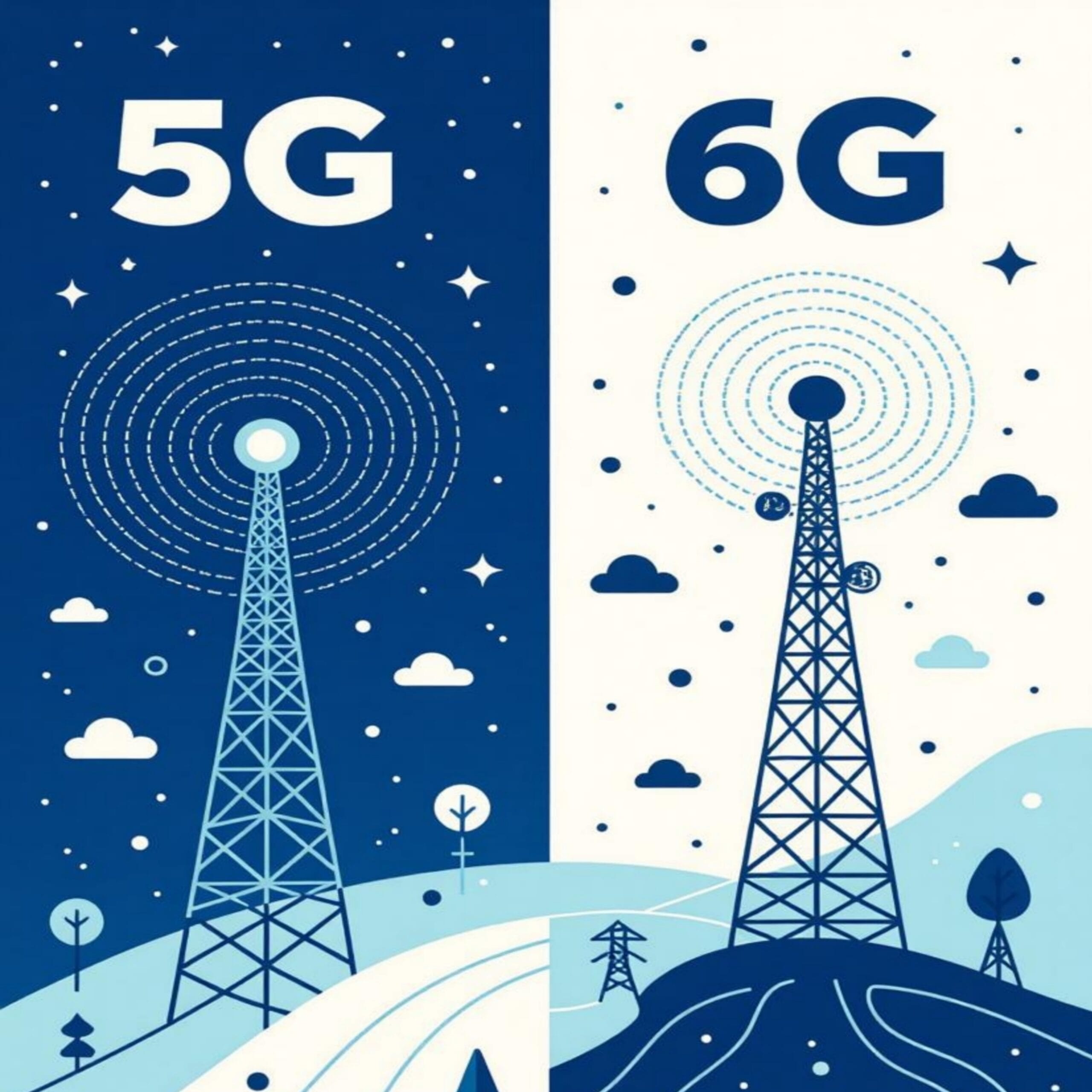The world is still rolling out 5G, but tech giants and researchers are already laying the groundwork for 6G, the next leap in wireless connectivity. So, what sets them apart, and what should you expect in the future of mobile networks?
📶 5G: The Present
- Speed: Up to 10 Gbps, nearly 100x faster than 4G.
- Latency: Around 1 millisecond, enabling real-time applications like cloud gaming and autonomous vehicles.
- Use Cases: Smart cities, IoT devices, AR/VR, high-quality streaming.
- Status: Still in global rollout, with coverage expanding rapidly.
🚀 6G: The Future
- Speed: Expected to reach 100x faster than 5G (could hit 1 Tbps).
- Latency: Near-zero (microseconds), enabling instant connections.
- Technology: Will use terahertz (THz) frequencies, AI-driven networks, and advanced quantum communication.
- Use Cases: Holographic communication, immersive metaverse, brain-computer interfaces, fully autonomous smart systems.
- Timeline: Research ongoing; commercial launch expected around 2030.
⚖️ 5G vs 6G at a Glance
| Feature | 5G Today | 6G Future |
|---|---|---|
| Speed | Up to 10 Gbps | Up to 1 Tbps |
| Latency | ~1 ms | <0.1 ms |
| Spectrum | mmWave | Terahertz |
| AI Use | Limited | Fully AI-driven |
| Applications | IoT, AR/VR, Smart Cities | Holograms, Metaverse, Brain-Computer Interfaces |
🌍 What It Means for You
- Short-term: 5G will continue to expand, improving mobile speeds, gaming, and IoT.
- Long-term: 6G promises a hyper-connected world, blurring the line between physical and digital realities.
Discover more from Dailyvanta
Subscribe to get the latest posts sent to your email.




